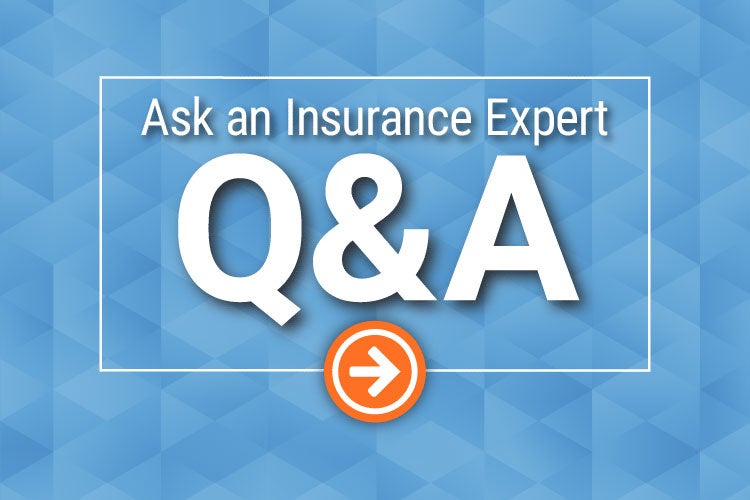
Table of Contents
- How does a New Jersey umbrella policy work?
- What does a New Jersey umbrella policy cover?
- When will I need my New Jersey umbrella policy?

How does an umbrella policy work in New Jersey?
I have a house in New Jersey and several cars. I have four drivers in my household including my spouse and two teenage drivers. I've also got both auto insurance and homeowners insurance. Do I need a New Jersey personal umbrella policy, too? Why or why not?

Before you understand what an umbrella policy is and if you need it, it’s important to understand what liability insurance is. If you have New Jersey auto insurance, homeowners insurance, renters insurance, or condominium insurance, you also have liability insurance as an essential part of those policies.
Liability insurance protects you when you or a covered family member causes some type of property damage or physical injury to another person. So your auto liability insurance covers you if you cause a car accident that injures another driver or passenger. Your home liability insurance covers you if someone is injured at your home or if you or covered family member hurts someone or damages someone’s property (e.g., your child breaks the neighbor’s window with a baseball).
Liability insurance pays for repairing or replacing damaged property of others. It also pays for medical expenses for injured parties, and it even pays your attorney fees, court costs, and any financial settlements or judgments that you have to pay if you are sued. But both your auto insurance and your home insurance have coverage limits that are specified in the policy. If you’re sued, your policy limits may not be sufficient to cover a large financial settlement.
A New Jersey umbrella policy offers excess liability coverage that kicks in when the limits of an underlying policy — including homeowners insurance, renters insurance, condominium insurance, or auto insurance — have been exhausted.

What does an umbrella policy cover?

Umbrella insurance offers excess liability coverage when a claim to your auto or home insurance exceeds the limits of that policy. It also provides excess liability protection to renters insurance, condo insurance, and boat insurance.
Umbrella policies offer “follow form coverage.” This means that the umbrella policy typically covers what the underlying policy does. What’s more, an umbrella policy may offer expanded coverage including covering you worldwide. So if you cause a car accident while driving abroad, your New Jersey auto insurance policy might not cover you but your umbrella policy would.
Umbrella insurance might also cover a few circumstances that the underlying policy does not, such as claims for libel, slander, and false imprisonment.
Here are some examples of where an umbrella policy might be invaluable.
- Your dog bites a neighbor who suffers serious injuries as a result. The neighbor sues you for payment of her medical bills and seeks additional compensation for lost wages and pain and suffering. Your defense costs and the settlement agreement exceed the liability limits of your New Jersey homeowners policy. Your umbrella policy kicks in and covers the excess amount.
- Your teen son runs a red light and causes a car accident. The other driver and the passenger are injured and they sue you for medical expenses, lost wages, and pain and suffering. The legal fees and financial payouts to the two injured parties far exceed the $500,000 bodily injury liability limit on your auto insurance policy. Your umbrella policy kicks in saving you from bankruptcy.
Keep in mind that you must have a certain level of underlying home and auto insurance in order to purchase an umbrella policy. These requirements vary depending on the insurance company, but typical minimum underlying insurance requirements are:
- Auto insurance
- Bodily injury liability coverage of $250,000 per person/$500,000 per accident
- Property damage liability coverage of $100,000 per accident
- Homeowners insurance
- Personal liability coverage of $500,000
Some umbrella insurance providers require you to have your auto and homeowners insurance with them before they will issue you an umbrella policy.

When will I need my umbrella policy?

You may have heard that only wealthy people or those with a big house or a lot of personal assets need an umbrella policy. And while it’s true that certain people might have more assets to protect, making them more vulnerable to lawsuits, anyone who wants protection from the devastating affects of a lawsuit should at least consider purchasing a New Jersey umbrella policy.
Certain lifestyle characteristics or possessions do make you more susceptible to lawsuits. You should talk to an independent insurance agent in New Jersey about your need for an umbrella policy if:
- You have a long daily commute or you drive frequently during rush hour (both increase your likelihood of being in a car accident)
- You have a swimming pool, a trampoline, or a boat (increases the likelihood of accidents and injuries on your property or causing an accident with your boat)
- You own a dog (increases the likelihood of a bite or your dog causing some kind of property damage to a neighbor or someone else)
If you like to entertain and frequently have guests in your home, you should seriously consider purchasing a personal umbrella policy. Having more people on your property simply increases the risk of someone getting injured no matter how many precautions you take.
And even if you are not a high risk individual, you can still be sued at any time. A personal injury lawsuit can result in an award of hundreds of thousands of dollars or more. Million dollar judgments are not uncommon. If you caused a car accident and the limit of your liability coverage was $350,000, how would you pay?
If you don’t purchase an umbrella policy now, be sure to discuss it with your independent agent each year as your situation changes.
Article Reviewed by | Paul Martin